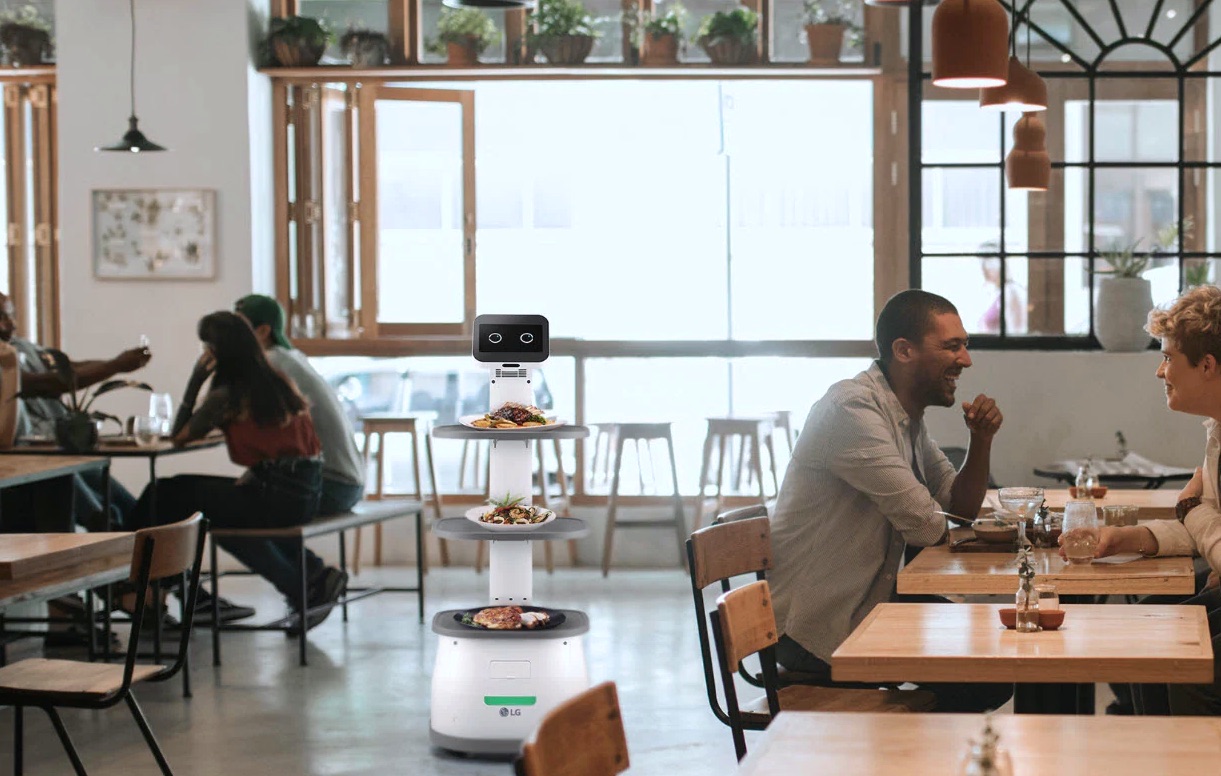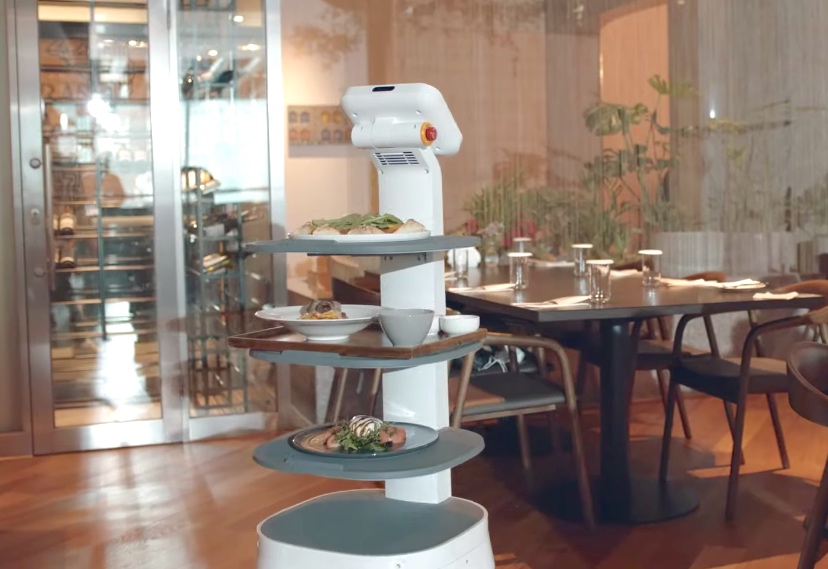When LG’s CLOi robot first came on the scene in 2018, it didn’t get off to the best of starts.
On stage at CES with former LG marketing chief David VanderWaal, CLOi clammed up at the worst possible moment, leaving VanderWaal to conclude that “CLOi doesn’t like me.”
Four years on, and several iterations later, CLOi is now ready for prime time, with the Korean company this week announcing the CLOi ServeBot robot for the U.S. market.
LG said the semi-autonomous contraption is ideal for “complex commercial environments” such as restaurants, retail stores, and hotels.
Able to handle loads of up to 66 pounds, 53-inch-tall CLOi can operate for up to 11 hours on a single charge. But don’t expect anything to happen in a hurry, as CLOi only has a top speed of 2.2 mph.
The robot can be programmed for a range of floor plans, “enabling precise multi-point deliveries ranging from densely packed restaurants to sprawling office complexes,” LG said, with a slew of sensors and cameras helping it to avoid collisions with passing staff and customers.
A video (below) released by LG last year shows CLOi trundling between restaurant tables and serving trays of food to customers. Well, almost serving, as CLOi’s deficiency in the arm department means that a human has to actually lift the meal from the tray to the table.
LG said it’s currently training operators on how to integrate CLOi into different business settings and will soon reach out to to U.S. companies to gauge interest in the robot.
“The LG CLOi ServeBot is truly a breakthrough for all kinds of consumer-focused businesses, from restaurants to retail stores to hotels,” LG’s Jeffrey Weiland said in a release.
“The CLOi ServeBot’s semi-autonomous operation offers businesses an effective means to provide enhanced service, while freeing staff to focus on customer relations and build relationships that encourage repeat visits. Whether it’s delivering food from the kitchen to a table or packages from the storage room to the front counter, LG’s CLOi ServeBot can navigate virtually any environment and free up staff to handle direct customer service.”
CLOi ServeBot is a more advanced version of the disembodied CLOi robot that appeared at CES in 2018. An on-stage demonstration at the tech event disintegrated into farce when CLOi decided to ignore the company’s marketing chief, who, to be fair, handled the situation pretty well. You can watch the calamity below.
Four years on and we’re assuming that LG engineers have created a vastly improved CLOi, though how many businesses will call upon its services remains to be seen.





